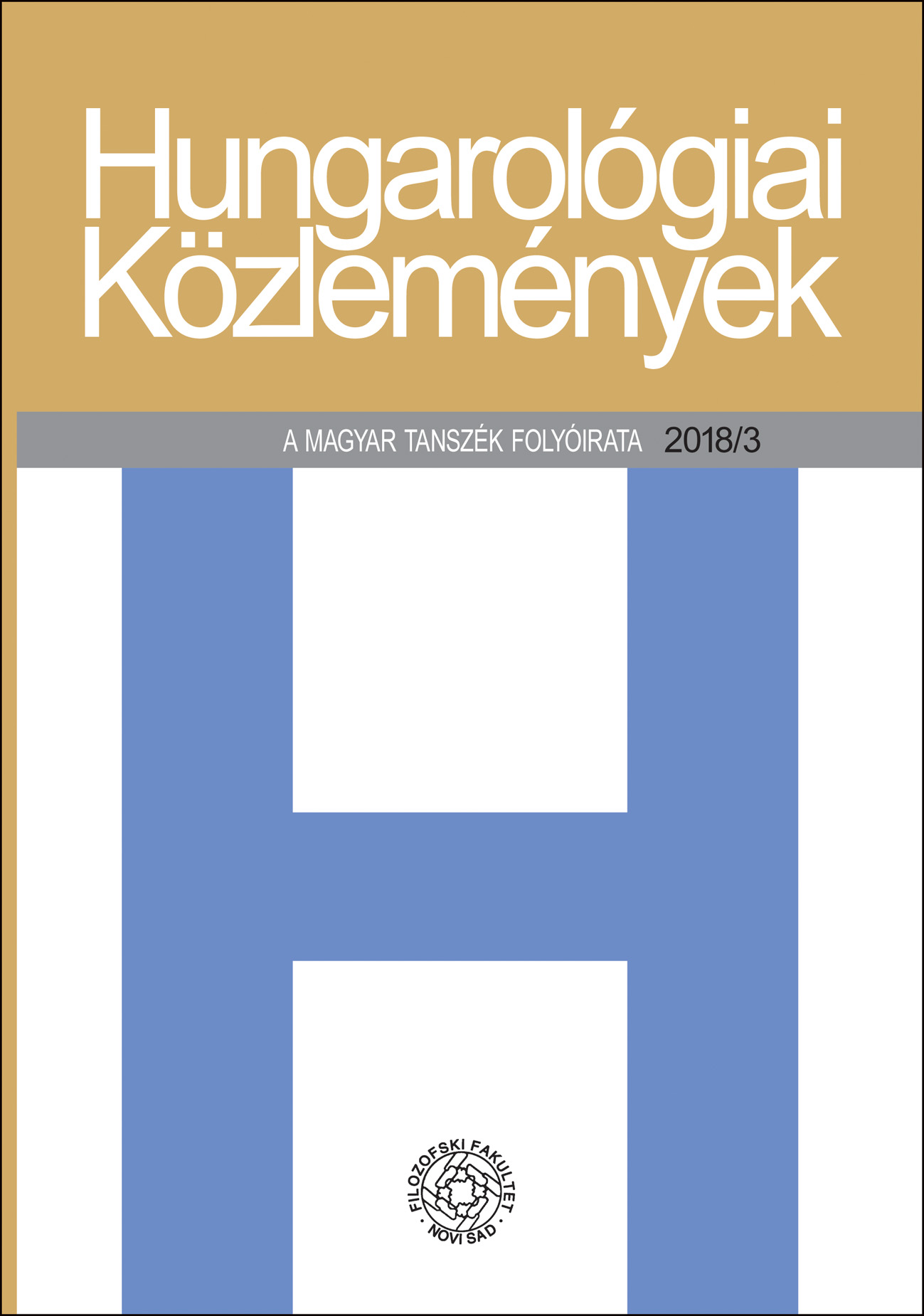„SZÉTTARTÓ EGYBETARTÁS”
Absztrakt
A tanulmány a magyar–francia írónő, Nina Yargekov Double nationalité (Kettős állampolgárság, Kettős nemzetiség) című regényét interpretálja. A mű központi kérdései a kettős hovatartozás, a kétnyelvűség, azok a tapasztalatok tehát, amelyek a szülői örökséget jelentő nyelv és kultúra, valamint a kivándorlók leszármazottainak új nyelvi, művelődési és szocializációs környezete kettősségéből származnak. A regényfikció elbeszélője távolságtartó beszédmódot alakít ki, ezzel is hangsúlyozva a hősnő mentális terében lejátszódó bonyolult folyamatokat és az egymással vitázó szólamokat. Az önmegszólító beszéd, a francia többes szám második személyében közöltek olvastán mintha az események alanyán kívül olvasóként mi magunk is megszólítottak lennénk. A regény bíráló hangnemben tér ki a politikai propaganda sztereotípiáira, s ebben sem a kontinens nyugati, sem a keleti felét nem kíméli. A fiatal nő helyzetét bonyolítják és kommunikációját mindkét térségben nehezítik a történelmi és nemzeti mítoszok közhelyei. A francia és a magyar környezetben is hol idegennek érzi magát, hol pedig úgy, mint aki hazatalált. Nina Yargekov művének tágabb kontextusát a kétnyelvű kortárs szerzők művei alkotják, akik világszerte az övéhez hasonló tapasztalatok megformálásán tevékenykednek.
Hivatkozások
Mercandier, Christine. 2016. Livres, Rentrées littéraires. Diacritik, 11. 15.
Ricoeur, Paul. 1999. Emlékezet – felejtés – történelem. Ford. Rózsahegyi Edit. In Narratívák 3. A kultúra narratívái, szerk. Thomka Beáta–N. Kovács Tímea. 51–67.Budapest: Kijárat.
Ricoeur, Paul. 2000. Történelem és retorika. Ford. Asztalos É.–Somlyó B. In Narratívák 4. A történelem poétikája, szerk. Thomka Beáta. 11–24. Budapest: Kijárat.
H. Varga Márta. 2015. A ’passzív’ jelentés és nyelvi kifejezőeszközei a magyarban. http://finnugor.arts.unideb.hu/fud/fud22/fud22cikkek/20_hvargamarta.pdf (2018. aug. 18.)








